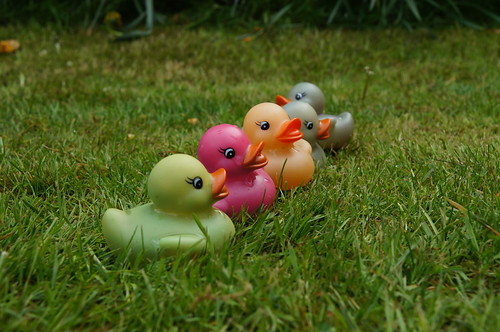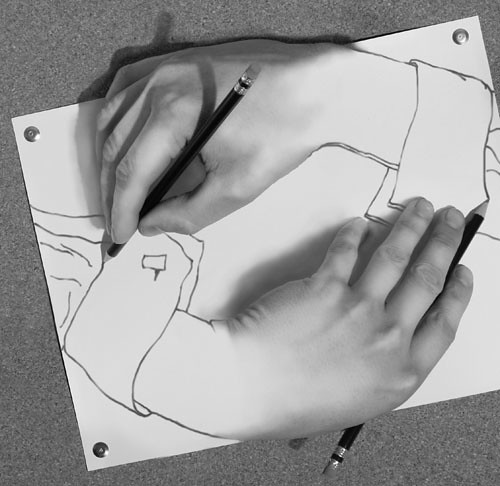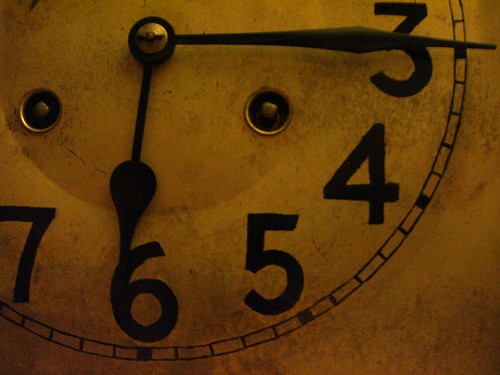Another trick to help get you to the gym:
relies on the same principle I posted about yesterday in regards to saving money: budgeting by day, week or month can make a big difference in how you view something: Two studies demonstrated that leading individuals to mentally reframe the time required for an exercise program (e.g., 2 hr per week) in terms of the equivalent daily amount (e.g., 17 min per day) reduced the perceived time commitment and increased people's willingness to try the program. Study 2 also identified a…
1 min read
Why are we so bad at predicting our future happiness?
om Eurekalert: The new evidence comes from Jordi Quoidbach, a psychological scientist at the University of Liege, Belgium. Quoidbach and Elizabeth Dunn, his collaborator at the University of British Columbia, found that our natural sunny or negative dispositions might be a more powerful predictor of future happiness than any specific event. They also discovered that most of us ignore our own personalities when we think about what lies ahead—and thus miscalculate our future feelings. And: "It might be worthwhile, before…
1 min read
Can perfectionism kill you?
e major hypothesis of the study was that perfectionism as a personality trait, along with the five-factor personality traits and dispositional optimism, is strongly associated with mortality in late life. After baseline assessment of health and personality traits as predictors of mortality, 450 participants were followed over a period of 6.5 years. Consistent with our hypotheses, findings demonstrated that risk of death was significantly greater for high scorers in perfectionism and neuroticism, compared to low scorers at the time of…
1 min read
Reading Can Help Satisfy Our Need For Belonging
a Eurekalert: In an upcoming study in Psychological Science, a journal of the Association for Psychological Science, Gabriel and graduate student Ariana Young show what that something is: When we read, we psychologically become part of the community described in the narrative—be they wizards or vampires. That mechanism satisfies the deeply human, evolutionarily crucial, need for belonging. And: As predicted, on both measures, Harry Potter readers "became" wizards and the Twilight readers "became" vampires. In addition, participants who were more…
1 min read
Can job insecurity harm your health?
onomic recessions, the industrial shift from manufacturing toward service industries, and rising global competition have contributed to uncertainty about job security, with potential consequences for workers’ health. To address limitations of prior research on the health consequences of perceived job insecurity, we use longitudinal data from two nationally-representative samples of the United States population, and examine episodic and persistent perceived job insecurity over periods of about three years to almost a decade. Results show that persistent perceived job insecurity is…
1 min read
Should you trust your gut when deciding whether a neighborhood is safe or not?
a Science Daily: It's an unfamiliar neighborhood and you find yourself in the middle of a bunch of streets and buildings you've never seen before. Giving the environment a quick once-over, you make a snap decision about whether you're safe or not. And chances are, that first 'gut' call is the right one, say Binghamton University researchers Dan O'Brien and David Sloan Wilson in an article published in the current issue of Journal of Personality and Social Psychology. And: Through…
1 min read
How To Create A Feedback Loop Of Happiness
examine whether a positive feedback loop exists between spending money on others (i.e. prosocial spending) and happiness. Participants recalled a previous purchase made for either themselves or someone else and then reported their happiness. Afterward, participants chose whether to spend a monetary windfall on themselves or someone else. Participants assigned to recall a purchase made for someone else reported feeling significantly happier immediately after this recollection; most importantly, the happier participants felt, the more likely they were to choose…
1 min read
How You Should Spend Your Time In Order To Increase Happiness
good article on Stanford Knowledgebase by Alicia DePlante covers research by Aaker, Rudd, and Mogilner. Here are the takeaway points on how to increase happiness by changing how you spend your time: Spend time with the right people. The greatest happiness levels are associated with spending time with people we like. Socially connecting activities — such as hanging out with friends and family — are responsible for the happiest parts of the day. However, work is also an essential…
2 minutes








